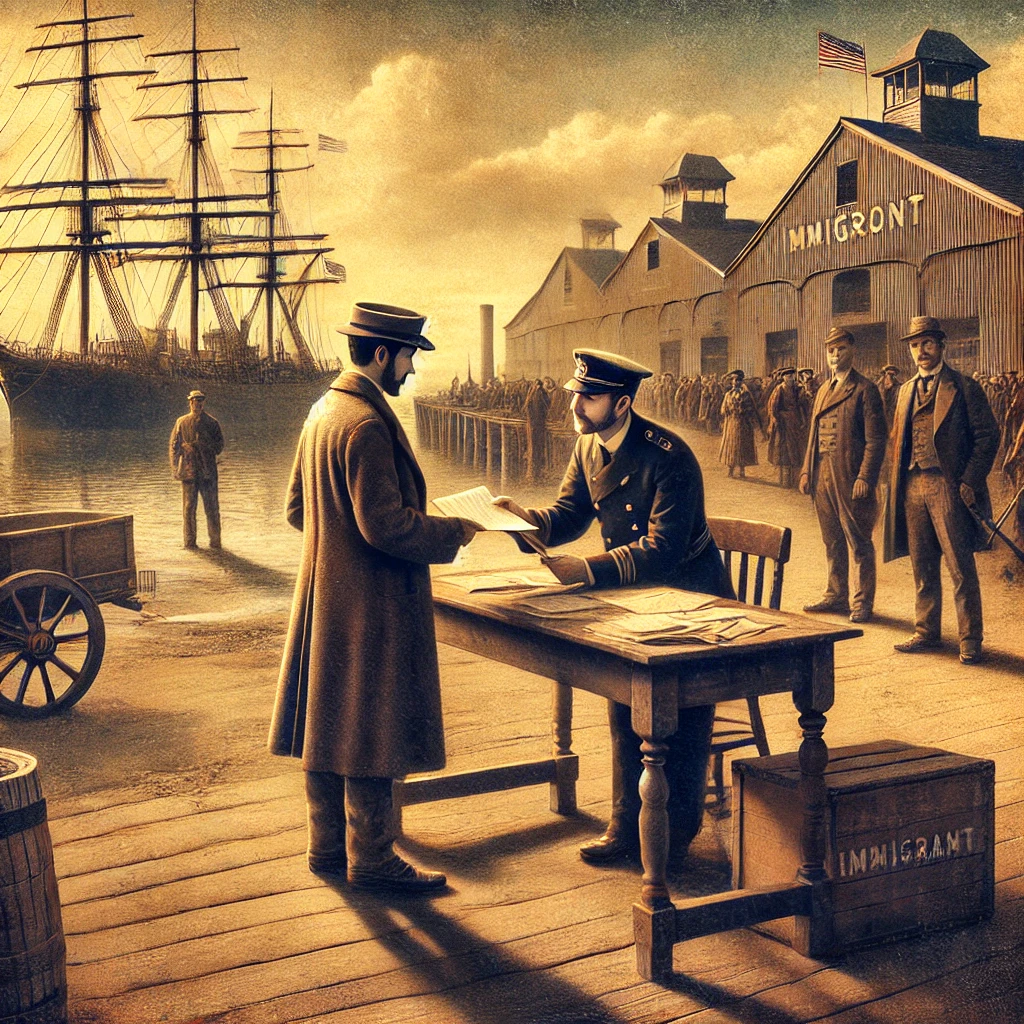
The Constitutionality of Immigration Officers’ Decisions and the Limits of Judicial Review in Immigration Cases
Nishimura Ekiu v. United States, 142 U.S. 651 (1892).
Substance of the Case:
This case addressed the authority of U.S. immigration officers to make final decisions on whether certain immigrants could enter the country, particularly those deemed “likely to become a public charge.” It also explored the extent to which courts could review such decisions, asserting the constitutionality of limiting judicial review in these administrative determinations.
Outcome of the Case:
- The U.S. Supreme Court upheld the constitutionality of the Immigration Act of 1891, affirming that:
- Immigration officers’ decisions to exclude certain immigrants were final and binding unless appealed to higher administrative authorities, such as the Commissioner of Immigration or the Secretary of the Treasury.
- Courts could not use habeas corpus to review or overturn immigration officers’ factual determinations.
- This administrative process was deemed consistent with due process of law, as guaranteed by the Constitution.
Detailed Facts, Analysis, and Conclusion
Facts:
- Nishimura Ekiu, a 25-year-old Japanese woman, arrived in San Francisco in 1891 aboard the SS Belgic.
- She claimed she was traveling to reunite with her husband, but immigration officers found inconsistencies in her story:
- She could not provide her husband’s address.
- She had only $22 and no clear plan for self-support.
- Based on these findings, immigration officials categorized her as “likely to become a public charge” under the Immigration Act of 1891 and denied her entry.
- Ekiu filed a writ of habeas corpus, arguing her detention was unconstitutional and her case should be reviewed by the courts.
Analysis:
Authority of Immigration Officers:
- The Immigration Act of 1891 granted immigration inspectors the power to assess whether an immigrant was part of an excluded class (e.g., likely to become a public charge).
- Their decisions could only be appealed within the administrative hierarchy, not through the courts.
Judicial Review and Due Process:
- The Court held that immigration decisions were inherently tied to the government’s sovereign power to regulate who may enter the country.
- These determinations, made by executive officers under congressional authorization, satisfied the requirements of due process because Congress had lawfully delegated this authority.
Role of the Judiciary:
- The judiciary’s role was limited to ensuring that immigration officers acted within their legal authority.
- It could not second-guess factual determinations made by officers acting under lawful congressional delegation.
Conclusion:
The Supreme Court affirmed the inspector’s decision to exclude Ekiu, ruling that:
Immigration officers could lawfully exclude immigrants they determined were ineligible to enter under the law.
Courts could not intervene to review the substance of these decisions unless Congress explicitly provided for judicial review.
This case reinforced the principle that immigration control is a sovereign power of the U.S. government, delegated to the executive branch, with limited judicial interference.
This ruling remains foundational in immigration law, shaping the extent of administrative discretion and limiting judicial oversight in immigration-related decisions.
Let’s Get Started
Your legal challenges deserve personalized attention and innovative solutions. Contact Oware Justice Advocates PC today for a consultation and take the first step toward resolution and peace of mind.
355 South Teller Street, Suite 204,
Lakewood, CO 80226
(Visits to the office are strictly by appointment only)
303-514-6589

